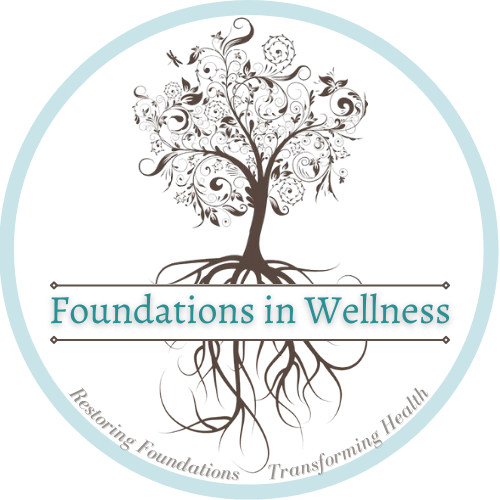
Introduction
Thyroid disease affects an estimated 20 million Americans, with a particularly high incidence among women. Despite its prevalence, thyroid disorders often remain underdiagnosed due to the subtlety and variability of the initial symptoms. Many individuals dismiss these early warning signs as merely effects of aging, stress, or lifestyle changes. However, recognizing the signs of thyroid disease is crucial for timely diagnosis and treatment, which can significantly enhance quality of life and prevent more severe health complications.
The Importance of the Thyroid Gland
The thyroid gland, a small butterfly-shaped organ located in the neck, plays a pivotal role in regulating the body’s metabolism through the production of thyroid hormones. These hormones, primarily thyroxine (T4) and triiodothyronine (T3), influence nearly every organ system in the body. They help regulate many bodily functions including heart rate, body weight, muscle strength, and even mood. Disruption in the production of these hormones can lead to significant health problems, classified primarily into two categories:
- Hypothyroidism: This occurs when the thyroid gland is underactive, producing insufficient amounts of thyroid hormones. It is the most common form of thyroid dysfunction.
- Hyperthyroidism: This condition arises when there is excessive production of thyroid hormones, leading to an overactive thyroid.
Recognizing the Symptoms of Hypothyroidism

Hypothyroidism can manifest through various symptoms that often develop slowly and can be subtle at first. Here are five primary warning signs:
- Persistent Fatigue: Feeling unusually tired or fatigued even after getting sufficient sleep can be a sign of hypothyroidism. The thyroid gland’s role in regulating energy can, when disrupted, lead to a noticeable decrease in energy levels and general lethargy.
- Unexplained Weight Gain: One of the most common indicators of hypothyroidism is weight gain that occurs without changes in diet or exercise habits. Because the thyroid gland regulates metabolic rate, any dysfunction can slow down metabolism, resulting in weight gain.
- Constipation: An underactive thyroid can slow down many bodily functions, including digestion. This slowdown can lead to chronic constipation, which is often one of the early signs of thyroid issues.
- Brain Fog: Thyroid hormones directly affect cognitive functions. Low levels of these hormones can impair your ability to think clearly, concentrate, and remember things, a condition often referred to as “brain fog.”
- Hair Loss: The thyroid influences the health of your hair follicles, and a deficiency in thyroid hormones can lead to noticeable hair loss. This may not be limited to scalp hair but can also affect other areas like the eyebrows.
Diagnostic Steps for Thyroid Disease
If you’re experiencing one or more of these symptoms, it’s advisable to seek a professional evaluation. Thyroid disease is typically diagnosed through a combination of symptom assessment and blood tests:
- Thyroid Stimulating Hormone (TSH) Test: This is often the first test conducted. High levels of TSH may indicate hypothyroidism, as the body attempts to stimulate more hormone production from the thyroid gland.
- T4 and T3 Tests: These tests measure the actual levels of thyroid hormones in the blood, providing more detail about thyroid function.
These tests can help confirm the diagnosis and allow healthcare providers to determine the most appropriate treatment strategy.
Managing Thyroid Disease Effectively
Managing thyroid disease involves a comprehensive approach that includes medication, lifestyle modifications, and regular monitoring:
- Medication: The most common treatment for hypothyroidism is hormone replacement therapy, which involves taking synthetic thyroid hormone (levothyroxine) to restore hormone levels to normal.
- Diet and Nutrition: Eating a balanced diet that supports thyroid health is crucial. This includes foods rich in iodine, selenium, and zinc, which are essential for thyroid hormone production and metabolism.
- Regular Exercise: Engaging in regular physical activity can help improve metabolism and overall health, mitigating some of the symptoms of hypothyroidism such as weight gain and depression.
- Stress Management: Chronic stress can exacerbate thyroid disorders. Techniques such as yoga, meditation, and mindfulness can be effective in managing stress.
- Regular Monitoring: Thyroid function needs to be monitored regularly through blood tests, as the required dose of medication might change over time.
Conclusion
Thyroid disease, particularly hypothyroidism, requires careful attention and management due to its subtle symptoms and significant impact on overall health. By understanding the signs and seeking early diagnosis and treatment, those affected can manage the condition effectively. It’s essential for individuals, especially those who experience the symptoms discussed, to consult healthcare providers and undergo appropriate testing. With the right approach, it is entirely possible to live a healthy and active life despite thyroid disease.


